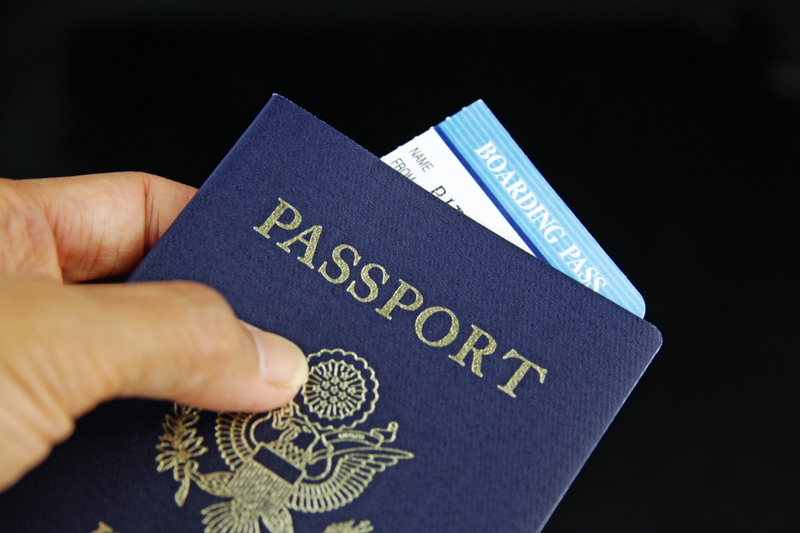Myth #1: International travel is no different than domestic travel.
False. Although all travel requires planning and can involve risk and complications, international travel requires taking extra steps and addressing additional considerations. First, you will need a passport prior to your travels. If you already have a passport, you need to make sure that it is current. A passport is valid for ten years for adults. If you do not already have one, you will need to complete an application and submit a photo to the State Department. It may take seven to ten weeks to get your passport, or four to six weeks if you pay a fee to expedite the process. Because of the long processing time, you must obtain or renew your passport well in advance of your trip.
Second, an international destination is most likely farther away than a domestic location. Because of the distance, it may be more difficult to handle emergencies that occur back home while you are away. Having a proper estate plan can ensure that your trusted decision makers will act on your behalf while you are away so that emergencies can be addressed as quickly as possible even if you cannot immediately return home.
Third, because of the complexities that can arise with international travel, it may be more prudent to purchase travel insurance. You may have more connecting flights that could result in delayed travel, visit places with risky weather, or have a packed itinerary that could easily be interrupted if something should come up. Insurance will not prevent issues from occurring, but it may be able to compensate you should you suffer a financial loss due to an unexpected issue.
Question #1: What planning should I do if I am going to leave my minor child in the United States while I vacation abroad?
When leaving your minor child with a trusted person, the person must have the authority to fully care for your child while you are away. This includes seeking medical treatment, signing school permission slips, etc. Choosing a person to watch over your child does not automatically give that person the requisite authority to carry out their duties. Most states have a legal document, the name of which varies by state, that you can complete to name someone as a temporary guardian of your minor child. This official document shows that you have delegated to them the authority to care for and make decisions for your child. It is important to remember that this document is only effective for a specific period of time (six months to one year, depending on your state’s law), so you may need to sign a new document before the current document expires. It is also important to note that, although this document allows you to delegate the responsibility to care for your child, it does not mean that you are no longer able to care for your child. The authority you delegate is in addition to your legal rights to care for your minor child—the person you choose is a backup.
Further, if you are going to be traveling, especially without your minor child, it is essential that you have proper estate planning documents and that they are up to date. A last will and testament is an important component of a comprehensive estate plan, because this document can be used to nominate a guardian for your minor child at your death if the other legal parent is unable to care for the minor child. However, a last will and testament only becomes effective at your death.
In some states, you may name a person to be your minor child’s guardian in a separate writing that is referenced in your last will and testament. One benefit to this approach is that you do not have to update your last will and testament if you only want to change the minor child’s guardian. This document could be used to let a court know your choice for a guardian if you are alive but unable to care for your child and the other legal parent is also unable to care for the child.
Question #2: What items might I have missed that I should add to my to-do list in preparation for my trip?
In addition to the typical tasks you may do before your trip such as stopping the mail delivery and adjusting your home’s thermostat, you should be sure to take care of the following:
- Meet with an experienced estate planning attorney to create an estate plan or update an existing estate plan
- Legally appoint someone to handle your financial matters while you are away
- Research how to name a medical decision maker in the country you will be visiting if you will stay in that location for a significant period
- Contact your health insurance company to see if they will cover you while you are traveling in another country
- Research and decide whether travel insurance is necessary or advisable for your trip
- Review any existing life insurance policies to make sure that the beneficiaries are properly named and that the activities you take part in during your trip (i.e., bungee jumping, rock climbing) will not void coverage
- Apply for or renew your and your child’s passport
- Have the proper documentation prepared to legally give someone the ability to make decisions for your child while you are away
If you see yourself traveling internationally, contact us. We’d be happy to help! Here is a link to our World Traveling Checklist for your use, free!

